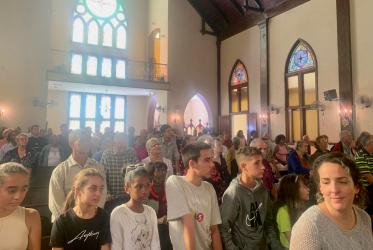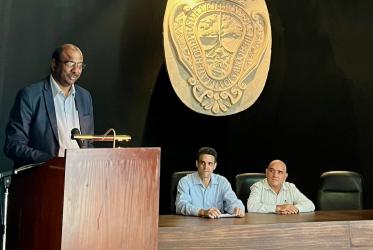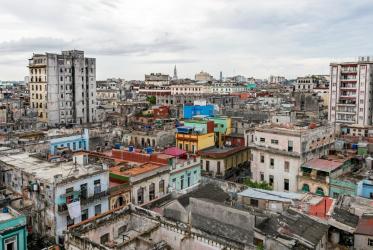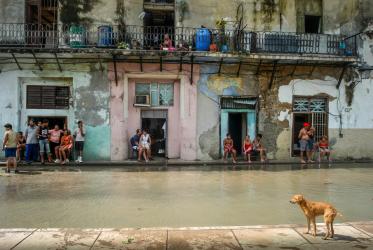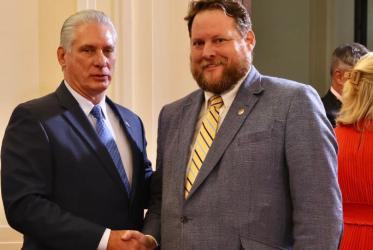Presbyterian-Reformed Church in Cuba
(Iglesia Presbiteriana-Reformada en Cuba)
In 1890 a small group of Presbyterians began to meet in Havana. They asked the Presbyterian Church in the USA to send them a missionary. A visit was made and the First Presbyterian Church in Havana was established that same year, with the first ordained Cuban Presbyterian pastor. A few years later, in 1895, the church had to close because of the Cuban War of Independence against Spain. In 1900 Protestant missionaries arrived in Cuba, at the time of the intervention of the USA in the war. Among them were several Presbyterians who re-initiated the work of the Presbyterian Church. During the following sixty years the church stood out in the organization of excellent schools and its participation in social service, especially literacy programmes. In the same way, its ecumenical foresight led the church to found the Council of Churches in Cuba in 1941 and, together with the Methodist and Episcopal churches, the Theological Seminary of Matanzas in 1946.
After the Cuban revolution in 1959, the church lost its schools and its membership diminished. It took the status of an autonomous and independent church in 1967, maintaining fraternal relations with the Presbyterian Church in the USA. When, starting in 1990, an opening occurred on the part of the government, the church started growing again rapidly. Currently it has three presbyteries and a synod. Its ecumenical influence is reflected in its participation in the various national, regional and global bodies of which it is a member. The church is now involved in a "Ministry to the Cuban People Today". Taking into account that 70 percent of its members have joined the church in the last ten years, it has strengthened its efforts for Christian education. The church is also exploring new ways of evangelization, organizing many Bible studies and prayer groups in different places. It has developed an important action of liturgical renewal, which includes using Cuban rhythms in the music and providing a balance between tradition and innovation. Also, after many years in which all the social services were in the hands of the government, the church has set up some social projects, which have been very well received by the people.
Today the Presbyterian-Reformed Church in Cuba continues to extend its international relations and also its impact in the country. An important factor has been the theological preparation of the laity, in special courses organized by the seminary in cooperation with the local congregations.

